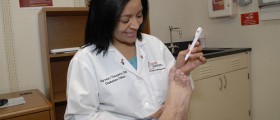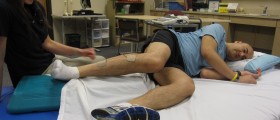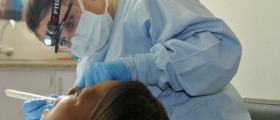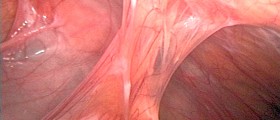
Information on Fungal Sinus Infection
Fungal infections of the sinuses can sometimes be very serious because they tend to cause the chronic rhinosinusitis. In most cases these infections are not invasive, but the situation may be a little different for persons with compromised immune system. It is important to distinguish an invasive disease from a noninvasive disease because they require completely different methods of treatment.
Treatment
The best treatment for any type of fungal sinus infection is a surgical procedure. Medical therapy depends on different types of infection and the presence or lack of invasion. Allergic fungal sinusitis usually needs to be treated by a surgical procedure. When diagnose gets confirmed, the patient may use systemic steroids.
Postoperative topical use of nasal steroids is recommended as well as aggressive salt water washes. If there is no invasion no systemic antifungal are indicated. Sinus mycetoma is best treated in a surgical manner. It does not require any antifungal treatment. Chronic invasive fungal sinusitis can only be treated by a surgical procedure. Systemic antifungals are once again among the most vital parts of the treatment. It is also recommended to use amphotericin B during the treatment.
Acute invasive fungal sinusitis always requires immediate medical attention in all cases. Surgery is required and it is commonly followed by a systemic antifungal treatment. Amphotericin B needs to be used in high doses. It is also required to treat the immune deficiency as the underlying medical condition. Chronic granulomatous fungal sinusitis needs to be treated by a surgical procedure which then needs to be followed by systemic antifungal treatment.
Allergic fungal sinusitis needs to be treated in a surgical manner because the allergic polyps and mucin are involved in the debridement and the sinus aeration gets restored. Sinus mycetoma requires the fungus ball to be removed so that aeration of the sinus can be established again in a normal way. Sometimes certain underlying medical conditions need to be treated in certain cases, but no other further medical treatment is needed once the surgical procedure is over.
Acute invasive fungal sinusitis requires a surgical procedure that involves a debridement using external approaches until the normal tissue can be reached. Chronic invasive fungal sinusitis is commonly less aggressive than its acute counterpart but it still requires endoscopic surgical debridement in certain cases. Rare cases may require external approaches for the debridement.
Chronic granulomatous fungal sinusitis needs to be treated surgically and it may involve external or endoscopic approaches, depending on the patient’s individual condition.

















Your thoughts on this
Loading...